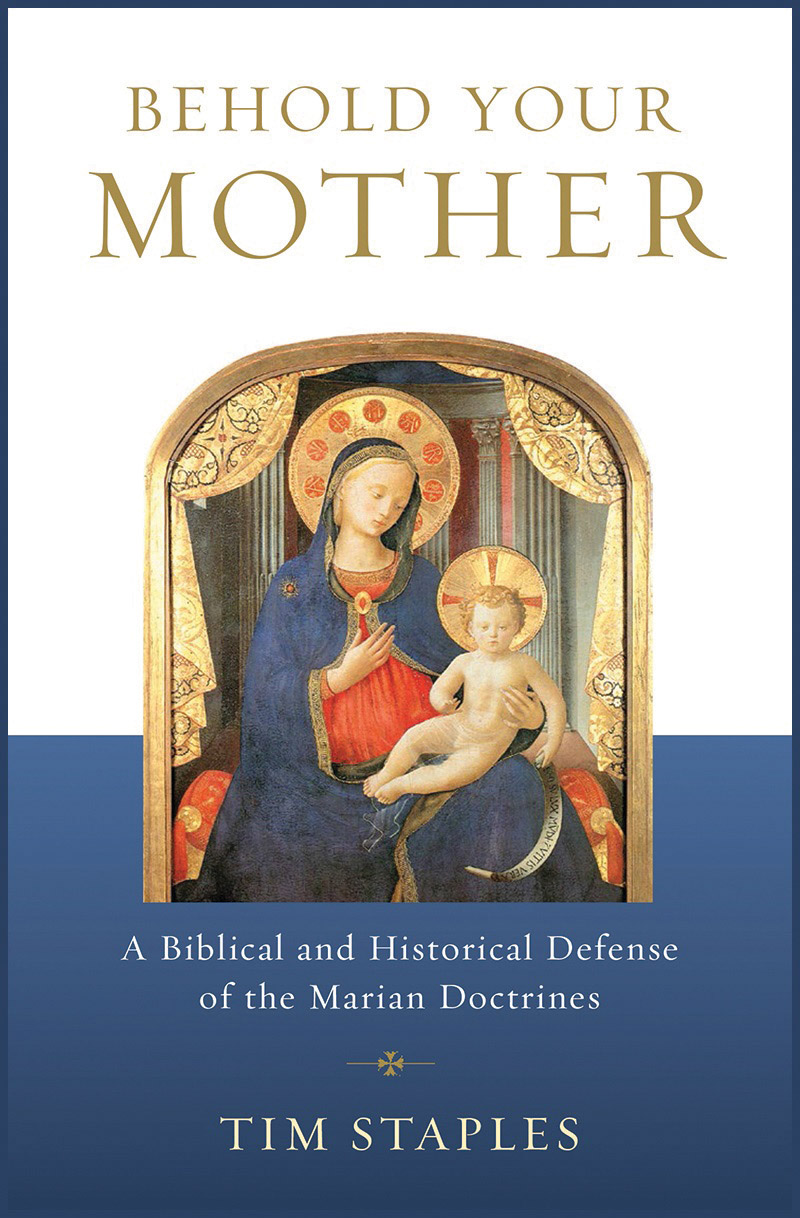“After presenting positive proofs for the Assumption of Mary, one always has to be ready for the biblical and historical arguments often used against it. Here is one common objection and how to answer it.
Objection: No one has ascended to heaven.
No one has ascended into heaven but he who descended from heaven, the Son of man (John 3:13).
This text is usually cited by the Christian or quasi-Christian sects that deny the natural immortality of the soul, e.g., Seventh-day Adventists, Christadelphians, Jehovah’s Witnesses, and the Iglesia Ni Cristo; however, some Fundamentalists use it, too. Here St. John was writing at a time likely long after Mary had ended her earthly life. So if he said that “no one has ascended into heaven,” the argument goes, that would include Mary.
There are at least four reasons why this text does not contradict the Assumption of Mary:
1. John was quoting words our Lord had spoken around A.D. 30. At that time Mary was still alive on earth.
2. Jesus could not have been saying that no one will ever be taken into heaven except him. If that’s the case, then what’s all this Christianity stuff about? You know, heaven and all?
3. One could also interpret John 3:13 as referring to Christ’s unique Ascension to heaven. The key here would be the word ascended. Mary did not ascend;she was assumed. Jesus ascended by his own divine power as he prophesied he would be in John 2:19–21: “Destroy this temple, and in three days I will raise it up . . . he spoke of the temple of his body.” Mary was powerless to raise herself; she had to be assumed into heaven.In a similar way, all of the elect will be assumed into heaven, so to speak,at the time of the resurrection of the body, as opposed to Christ, who alone ascended into heaven.
4. There are a couple of nuances in this text that many miss. According to St. Irenaeus in the second century John wrote his Gospel with an emphasis on demonstrating the errors of the fathers of Gnosticism and the heresiarch Cerinthusin in particular, who—among his many errors—denied the divinity of Christ. Thus, in quoting these word from Jesus he intended to demonstrate that “the Son of man descended” from heaven as the “only begotten Son,” a divine person, sharing his Father’s nature.In other words “the Son of man” is the same person who was eternally with the Father in heaven and who descended to the earth in the Incarnation.
Moreover, his point was that even while Christ walked the earth with his disciples in Galilee he was in possession of heaven, experiencing the beatific vision, as true God and true man.
His human body would not be glorified until after the Resurrection, but, according to John, Christ could already “see” the Father while on earth. Thus, while we human beings must “walk by faith, not by sight” (2 Cor. 5:7), Christ did not have “faith;” he had the “sight” of God that brings about “knowledge.” Thus, Pope Pius XII would declare:
For hardly was [Christ] conceived in the womb of the Mother of God, when he began to enjoy the Beatific Vision.
Consequently, Jesus, in his human nature, had already “ascended into” or possessed heaven—the beatific vision being the essence of what heaven is—even from his mother’s womb. Because he was and is both God and man, he could say that he had already “ascended” to heaven precisely because as God “he” had brought about this great mystery by his own power. Our Lord’s words, and therefore, it was purely spiritual, not material. “And therefore to indicate that he is said to have come down in this way, because he assumed a [human] nature, he said, the Son of man came down, i.e., insofar as he become Son of man” in the Incarnation.”
“O Immaculate Virgin, Mother of God and Mother of men, we believe with all the fervor of our faith in your triumphal Assumption, both body and soul, into heaven, where you are acclaimed as Queen by all the choirs of angels and all the legions of the saints. And we unite with them to praise and bless the Lord who has exalted you above all other pure creatures, and to offer you the tribute of our devotion and our love.
“We know that your gaze, which on earth watched over the humble and suffering humanity of Jesus, in heaven is filled with the vision of that humanity glorified, and with the vision of uncreated Wisdom; the joy of your soul in the direct contemplation of the adorable Trinity causes your heart to throb with overwhelming tenderness. We, poor sinners, weighed down by a body which hinders the flight of the soul, beg you to purify our hearts, so that while we remain here below, we may learn to love God and God alone in the beauty of His creatures.
“We trust that your merciful eyes may deign to look down upon our miseries and our sorrows, upon our struggles and our weaknesses; that your countenance may smile upon our joys and our victories; that you may hear the voice of Jesus saying to you of each one of us, as He once said to you of His beloved disciple: ‘Behold thy son.’ And we, who call upon you as our Mother, take you, like John, as the guide, strength, and consolation of our mortal life.
“And from this earth over which we tread as pilgrims, comforted by our faith in the future resurrection, we look to you, our life, our sweetness, and our hope. Draw us onward by the gentleness of your voice, so that one day, after our exile, you may show us Jesus, the Blessed Fruit of your womb, O clement, O loving, O sweet Virgin Mary” (-Venerable Pope Pius XII).
Love,
Matthew

